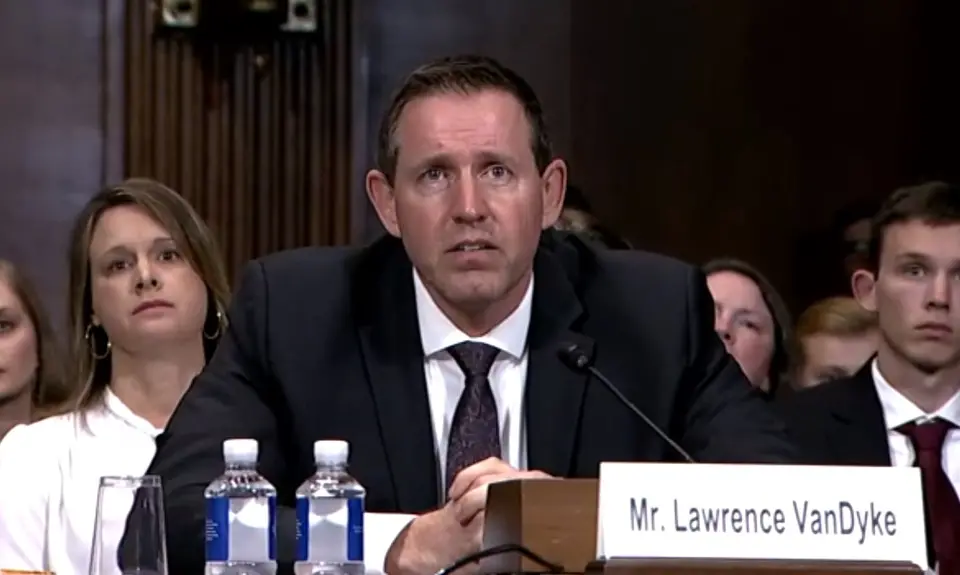“Confirmed Judges, Confirmed Fears” is a blog series documenting the harmful impact of President Trump’s judges on Americans’ rights and liberties. Cases in the series can be found by issue and by judge at this link.
Trump Ninth Circuit judge Danielle Forrest, joined by Trump judge Lawrence VanDyke, reversed a district court and ruled that consumers harmed by short-term, high-interest “payday” loans could not pursue a class action for fraud and related violations, but must instead at least initially submit their individual claims for arbitration as requested by defendants. The September 2021 decision was in Brice v Plain Green LLC.
As documented by the Consumer Financial Protection Bureau (CFPB) and others, “payday” loans are high-cost loans made to lower-income, low-credit borrowers who often encounter questionable practices and later financial problems as a result. Although many states regulate payday loans by such methods as prohibiting exorbitant or “usurious” interest and other measures, the limited liability corporations and others who make such loans have sought to evade regulation, through such methods as using the internet and a technique referred to as “rent-a-tribe,” in which “tribal shell corporations, acting as fronts for non-Indian payday lenders, charge borrowers exorbitant interest” and claim they are subject only to tribal law, not state or federal law. Loan agreements usually provide that any disputes must be arbitrated individually by an “independent third party” based largely on tribal law. A number of California consumers were victimized by these practices and filed a class action lawsuit against Think Finance LLC and its owners and investors, contending that the defendants had used such tribal shell corporations to make improper payday loans with interest rates of more than 400% per year.
As in many such cases, several defendants tried to stop the class action and force individual arbitration of each victim’s claims pursuant to an arbitration clause in the loan agreements. Following the lead of most other courts to have considered such lawsuits, the district court rejected the motions to compel arbitration. The defendants appealed.
In a 2-1 decision, Trump judges Forrest and VanDyke reversed, holding that the plaintiffs were required to submit each of their individual claims to arbitration, and that they could proceed with a broader lawsuit only if the arbitrators themselves decide that it was improper for the arbitration agreement to delegate to them the question of whether the disputes are subject to arbitration. Based on their interpretation of Supreme Court decisions on arbitration of cases involving consumers suing corporations, the Trump judges ruled that the provision in the agreement “delegating to an arbitrator” the issue of whether the agreement to arbitrate was valid, and that the district court must “compel the parties to proceed with arbitration.” Only if the arbitrator concludes that “the arbitration agreement is unenforceable,” Forrest continued, can the consumers “return to court” and seek broader relief.
Judge William Fletcher firmly dissented. He noted that the majority decision contradicts “all of our sister circuits that have addressed” the issue, including the Second, Third, and Fourth Circuits, in holding that the delegation provision was valid. Based on a careful analysis of these decisions, the Supreme Court rulings, and the language of the loan agreements, Fletcher determined that both the delegation provision and the arbitration agreement were invalid, particularly since they operate as a “prospective waiver” of the borrowers’ right to seek remedies for violations of state and federal statutes protecting consumers’ rights. Fletcher concluded that the effect of the Forrest-VanDyke ruling was to “improperly force vulnerable borrowers into arbitration,” despite the fact that other circuits had “consistently condemned” such arbitration agreements, “including those used by the very same lenders as in this case.”
As a result of the holding by Trump judges Forrest and VanDyke, therefore, California borrowers will not be able to pursue effective relief against the improper payday loan practices in the case, and a troubling precedent has been set that goes even further than past cases in forcing consumers to resort to ineffective individual arbitration in disputes with corporations. The case further shows the need, as part of our fight for our courts, to promptly confirm Biden nominees to the Ninth Circuit and all our federal courts to counterbalance the views of such Trump judges and show proper respect for the rights of consumers. In fact, as explained elsewhere in this blog, President Biden has recently submitted the nominations of three “highly qualified judicial nominees” to the Ninth Circuit as part of the effort to “restore our federal courts.”
